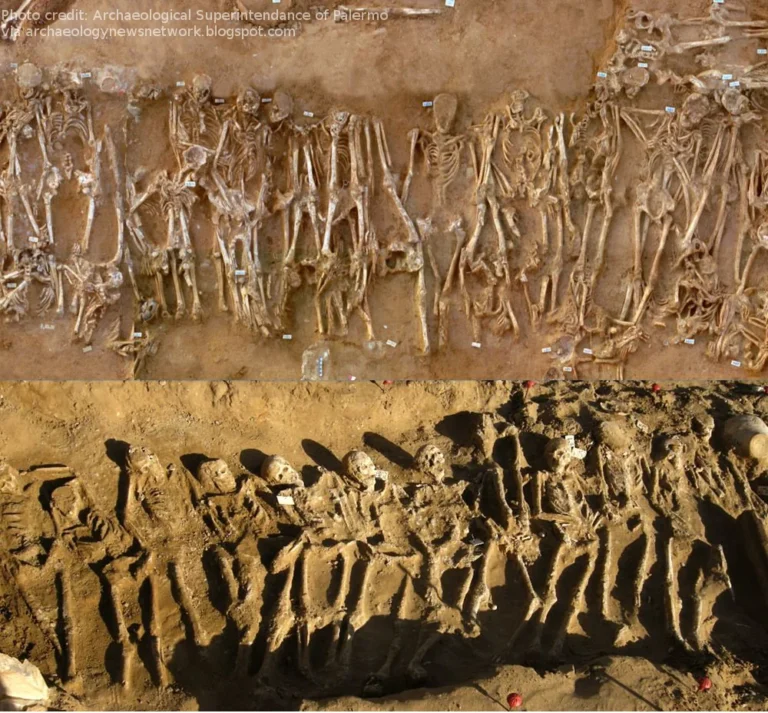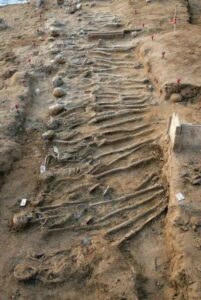Ancient Greek Sicilian Soldier Remains from the 480 BC Battle of Imera (Palermo)

In the archaeological exploration of the Battle of Imera (Palermo), a remarkable discovery has emerged, shedding light on the fierce clash between the Greeks and the Carthaginians in 480 BC. The excavation site has yielded a haunting array of skeletons, each a silent witness to the brutalities of ancient warfare.

The skeletal remains, carefully unearthed and meticulously studied, tell a poignant tale of the soldiers who once stood on the battleground. The bones bear the marks of a violent encounter, providing valuable insights into the nature of the conflict that transpired on that historical battlefield. From the fractures and wounds evident in the skeletal structure, researchers have been able to reconstruct the intensity and brutality of the Battle of Imera.

Historical records have long spoken of the Greek Siciliotes’ triumphant victory in this ancient clash, and the discovery of the fallen warriors adds a tangible and somber dimension to the narrative. The skeletal evidence corroborates the historical accounts, affirming the toll exacted by the conflict and the sacrifices made by those who fought for their respective civilizations.
Through careful analysis of the remains, researchers aim to unravel not only the details of the battle itself but also gain a deeper understanding of the individuals who participated. The excavation has become a gateway to the past, allowing us to connect with the lives and experiences of these ancient soldiers who played a pivotal role in shaping the course of history.
As the ongoing archaeological investigation progresses, the stories of these fallen warriors continue to unfold, contributing to a more comprehensive understanding of the Battle of Imera and the dynamics between the Greeks and